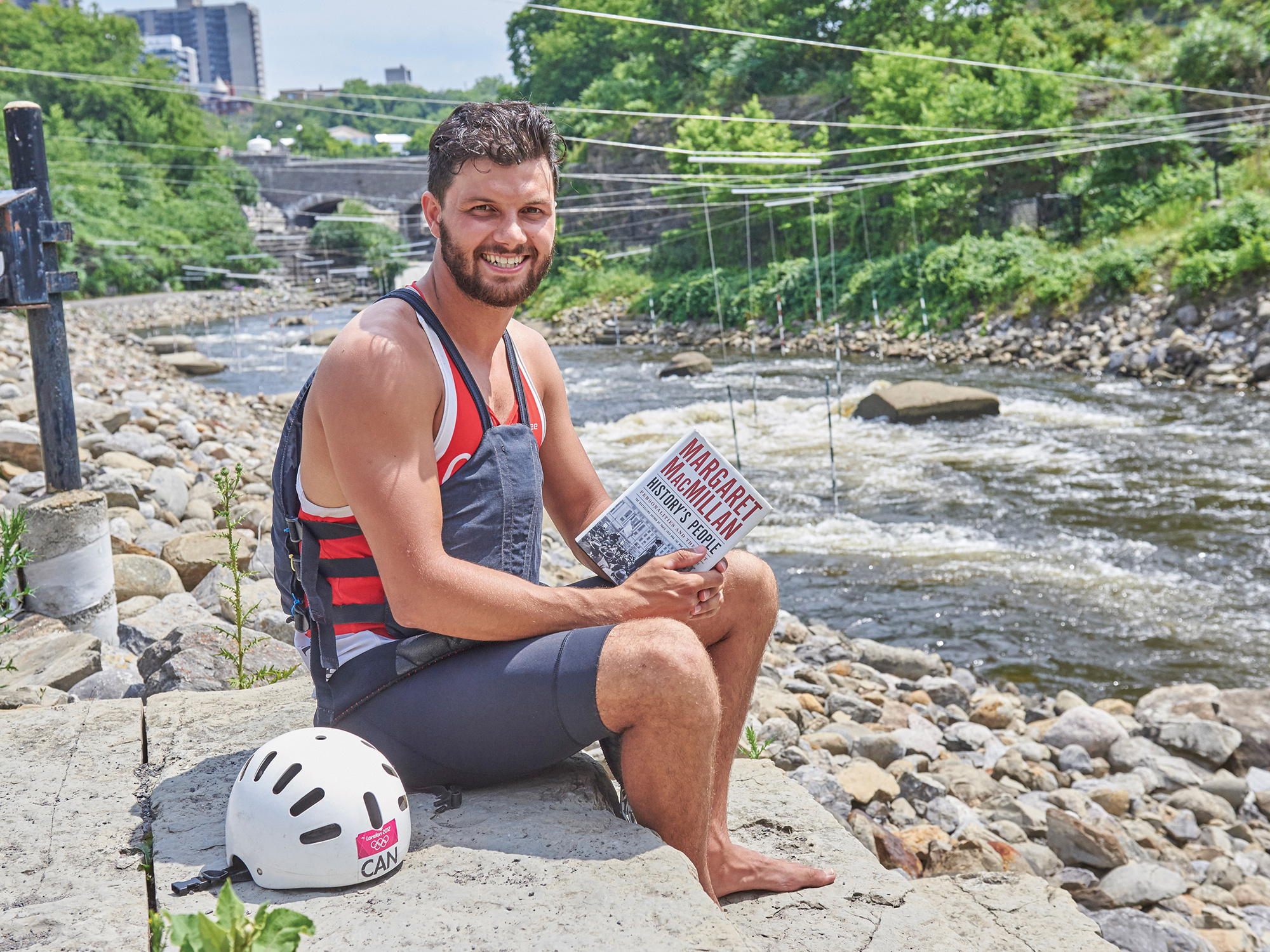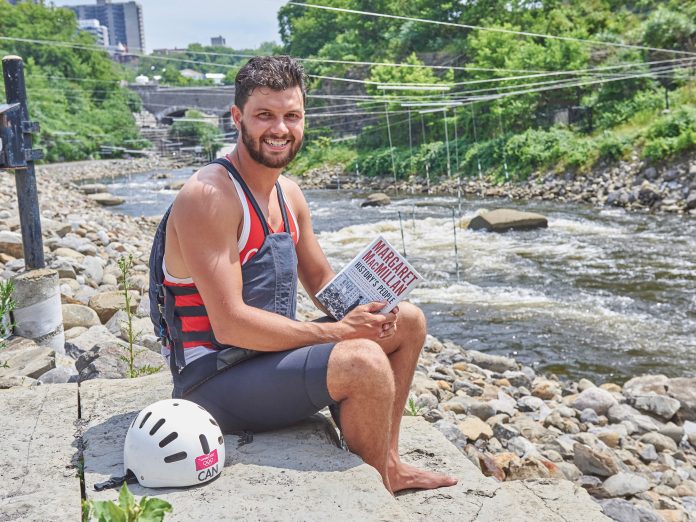
By Maureen McEwan
Michael Tayler was headed to the summer Olympics.
The long-time Westboro resident was set to represent Canada in men’s canoe/kayak slalom at the Tokyo 2020 Games this month. And then the pandemic struck.
In late March, with COVID-19 concerns mounting globally, the International Olympic Committee (IOC) made the decision to postpone the Olympic and Paralympic Games until next summer.
It would have been Michael’s third Olympic run. In 2012, he raced at the London Olympics in canoe/kayak slalom and finished 20th in the K-1 Men’s event. At 20-years-old, he was the youngest competitor in the field.
In 2016, he represented Canada once again at the Rio Games and finished 16th in the K-1 Men’s event, missing semifinals but just one spot.
Michael qualified for the 2020 Tokyo Olympics this February after a grueling, highly-competitive six-month qualification process.
“Even though I had competed at the past two Olympics, every time it’s so difficult to make [it] because we only have one representative from Canada in whitewater men’s kayak,” he said. “So there’s only one that gets to go.”
In September, he raced at the World Championships in the first qualifying stage. He then headed to Australia for the second and third stages in January and February where he said it was a “must win situation.” Michael won in both races in Australia, securing the 2020 Olympics.
“It was an amazing moment to have been able to make the spot and get the confirmation just at the very end of February,” he said. “And then, of course, I had, I think, it was probably only about three weeks where I thought I was going to the Olympics this summer.”
Michael came back home to Canada on March 6. At the time, he remembers thinking that the Olympics might still go on. With COVID-19, things were shifting constantly and athletes around the world waited for a decision from the IOC.
“As everything has unfolded, it was absolutely the right decision for them [the Games] to be postponed,” he said.
But the decision changed some of Michael’s professional plans.
“I’m at the end of my career. I really am, I’m planning to retire after these Games. So I think, honestly, for me, the biggest thing in the moment [that] I was thinking was “Oh wow, so I guess I’m not retiring this year. I’ve got one more year — I’ve got to keep training!” he said, laughing.
For athletes, coming to terms with retirement can be a difficult step mentally and physically. In his field, while athletes can paddle competitively well into their 30s and 40s, Michael said he was ready to retire at 28.
As a Canadian who competes in an outdoor summer sport, Michael has often had to travel abroad. Typically, his winters are spent training in Australia and New Zealand and competing in Europe over the summers.
“I definitely feel extraordinarily lucky, privileged and fortunate to compete in a sport and to be able to do that.” he said.
“There is just a crazy amount of time on the road and living out of a suitcase and, you know, missing holidays, missing birthdays, missing family moments. All of that,” he added. “So it certainly is a sacrifice you have to make to be able to compete at the world stage. I’m looking forward to having a little bit more time to spend in Canada and at home.”
But with the Games being postponed, Michael said there’s been a “real silver lining.” He now has the chance to recover from a few injuries and from the “full-speed” qualification process.
So the Olympian is at home in Westboro. Michael was born in Calgary but he grew up in Kitchissippi, attending Churchill Alternative School and Nepean High School. Right now, he’s staying with parents Jim and Christine.
“I think this is the most time I’ve spent at home in the last couple of years because I normally am always off on a trip. We’ve definitely had to adjust as a family, with all of us being home!” he said laughing.
Like many Canadians, he’s adapted to working from home — Michael works for RBC through the Olympians Program. He’s also had to balance work with training in self-isolation. When he arrived home, Michael converted the Tayler family dining room into a gym.
“I don’t have any commute time to get to the gym, so that’s kind of easy. I can get a workout in and then pop back over to my office in just a few seconds.” he said, laughing.
On average, Michael said he’s been working out for one to three hours per day since the pandemic hit. Now that the weather has improved, he’s been able to get back on the water.
For fun, he’s been playing games, biking and working on a few home projects with his family. He’s also been staying connected virtually with friends across the world, including fellow athletes in a similar situation.
“[It’s] a very different summer for me but [I’m] enjoying some of the little things and the opportunity to have a little more time to get healthy and be ready for next summer, whatever it might look like,” Michael said.
